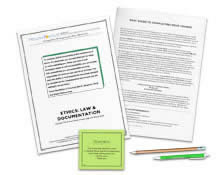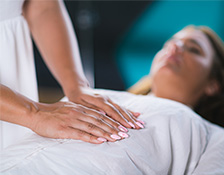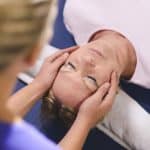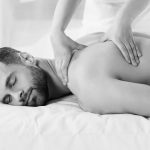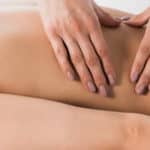

 Want to earn continuing education credit for this article? Learn more.
Want to earn continuing education credit for this article? Learn more.
Reiki in Hospitals
Reiki can be taught to just about anyone. There are no prerequisites or licensing needed to receive the attunements or training. Many who become Reiki practitioners already practice some form of bodywork; many do not. Some doctors and nurses are receiving attunements and using Reiki on their patients. Some hospitals across the United States include Reiki in their treatment options. Often nurses administer this technique, but massage therapists are used as well, whether on staff or as independent contractors.
As time goes on and more information gathered, Reiki has gained popularity in hospitals. While the exact number is not known, one report is that more than 800 hospitals offer Reiki nationwide and many also are studying the use of Reiki with patients. Some notable hospitals include:
- Memorial Sloan Kettering Cancer Center
- Mayo Clinic
- Dana-Farber Cancer Institute
- New York-Presbyterian
- Cleveland Clinic
- Mount Sinai
Hospitals are finding that Reiki sessions cause patients to heal faster and have less pain. Patients having surgery ask for Reiki before the operation and during recovery. It has been used in hospital operating rooms as early as the mid 1990s and has grown since then.
Back in 2007, a survey indicated that about 15% (over 800) of U.S. hospitals were offering Reiki as a regular part of patient services. The most recent report available, published in 2009, revealed that 37% of hospitals were offering CAM treatments, which included touch therapy. The Center for Reiki Research (CRR) created a workshop on how to introduce, operate, and maintain a Reiki program in the medical setting. There are currently over 1,000 Reiki programs in U.S. hospitals.
Reiki Studies Show Positive Results
The Center for Reiki Research has conducted many studies of evidence-based research summaries. The overall results show strong indications of Reiki being highly effective in reducing stress as well as offering a significant reduction in anxiety and pain in chronically ill patients. High stress levels cause an increase in heart rate and blood pressure. Stress can also cause an increase in pain levels. Reiki has been shown to counter this by activating the parasympathetic system, or vagal nerves, which in turn helps the body to relax.
One of the first studies to assess the impact of Reiki treatments on the autonomic nervous system was conducted with 45 participants broken into three treatment types:
- a Reiki treatment group
- a “sham” treatment group – The National Institutes of Health says that, “Sham Reiki involves an actor mimicking the hand positions and other procedures used by the attuned Reiki practitioner.”
- and a “control” group.
As the study kicked off, all participants began at “baseline” autonomic nervous system levels. The intriguing findings within the Reiki treatment group revealed a notable decrease in levels, including heart rate, respiration, and blood pressure compared to the placebo and control group.
These promising outcomes prompted the research team to advocate for further and larger studies to delve deeper into the effects of Reiki treatment.
A 2010 study published in the Journal of the American College of Cardiology evaluated the effects of Reiki on patients recovering from a heart attack. The study, titled ‘Effects of Reiki on Autonomic Activity Early After Acute Coronary Syndrome,’ evaluated heart-rate variability (the time interval between heartbeats). This measure is commonly used to assess stress and emotional state. A sample of 49 patients randomly received Reiki or one of two other interventions (rest or classical music) within 72 hours of an acute coronary syndrome such as a heart attack. Researchers found that Reiki had a larger impact on patients’ overall emotional state and showed a significant increase in heart-rate variability within three days, indicating a reduction in stress.
A 2017 review of Reiki studies concluded that Reiki is a safe, gentle, and profoundly relaxing healing modality that can be practiced by anyone who has received an “attunement” from a Reiki master. This review has found reasonably strong evidence for Reiki being more effective than a placebo, suggesting that Reiki attunement leads to a quantifiable increase in healing ability.
Reiki was better than a placebo in activating the parasympathetic nervous system, as measured by:
- reduced heart rate
- reduced blood pressure
- and increased heart rate variability.
Reiki is more effective than a placebo for patients with chronic health conditions for:
- reducing pain, anxiety, and depression
- and improving self-esteem and quality of life.
According to the neurovisceral integration model and the polyvagal theory, these effects are due to higher parasympathetic nervous system activity mediated via the vagus nerve.
A 2021 review of Reiki studies looking at Reiki’s effects on mental health highlighted the potentially beneficial role of Reiki in mental health care. They concluded that Reiki had been explored in selected studies to demonstrate its efficacy in reducing anxiety, depression, and stress symptoms. Future studies were recommended, including ones with larger samples, consistent randomized clinical trials, and follow-up.
A 2023 study investigated how Reiki affects anxiety, fear, pain, and oxygen levels in patients undergoing open abdominal surgery.
They randomly assigned 93 participants to three groups:
- Reiki
- sham Reiki
- and control.
Using different scales, they measured anxiety, fear, pain, and oxygen levels. The results showed that the Reiki group experienced significant reductions in surgical fear, anxiety, and pain levels, along with increased oxygen saturation, compared to the other groups suggesting that Reiki had positive effects on these aspects during open abdominal surgery.
Another 2023 study aiming to explore the impact of Reiki on pain, anxiety, and quality of life in fibromyalgia patients showed similar results. The research included 50 participants, with 25 receiving Reiki and 25 in the control group (sham Reiki applied). Reiki sessions were conducted once a week for four weeks. Results showed a significant reduction in pain scores in the Reiki group compared to the control group after each weekly session. Over the 4-week period, anxiety levels decreased, and various aspects of quality of life improved in the Reiki group compared to the control group.
Documenting Reiki Sessions
 In the field of medicine, documentation is essential. Documentation shows a patient’s evolution from illness through health. It shows if a particular treatment is working or not. It can be used to evaluate and enhance the practitioner’s work. Over time accumulated documentation can give a particular treatment protocol credibility. Documentation is important for sharing patient information with other medical professionals. This can help them keep track of patient progress.
In the field of medicine, documentation is essential. Documentation shows a patient’s evolution from illness through health. It shows if a particular treatment is working or not. It can be used to evaluate and enhance the practitioner’s work. Over time accumulated documentation can give a particular treatment protocol credibility. Documentation is important for sharing patient information with other medical professionals. This can help them keep track of patient progress.
Usually, a person will receive more than one Reiki session. A busy practitioner will have many clients. A massage therapist may have a mix of bodywork sessions and Reiki sessions. Documentation helps to keep this all in some kind of order rather than trying to remember each client’s needs.
No matter what kind of work a therapist does with a client, perhaps the intake form is the most crucial documentation. If an intake form is already used for massage sessions, the same can be used for Reiki. It is also prudent to have the client sign an informed consent form that describes the nature and purpose of a Reiki session, including the benefits and limitations. The rest of the consent form would be similar to those of the massage therapist: a definition of the scope of practice; that the practitioner does not diagnose, prescribe medication or interfere with care being provided by other medical practitioners; and the assurance of confidentiality as outlined by HIPAA regulations.
If you are performing hospital-based Reiki, bring your intake, consent forms, and SOAP forms. Don’t rely on your memory to write them up when you return to your office or home. This is especially true if you work with several clients daily.
No matter what type of work you do with clients – in the healthcare field – accurate, concise and detailed documentation equals professionalism and credibility.
Expand Your Practice
By expanding your massage practice to include Reiki, you will be able to offer your clients more choices and offer new clients some alternatives to hands on bodywork. With more and more hospitals accepting and offering Reiki to their patients you can be included in this emergent field.
Earn continuing education credit for this article contained in our Reiki: An Introduction series. Click here to enroll.

